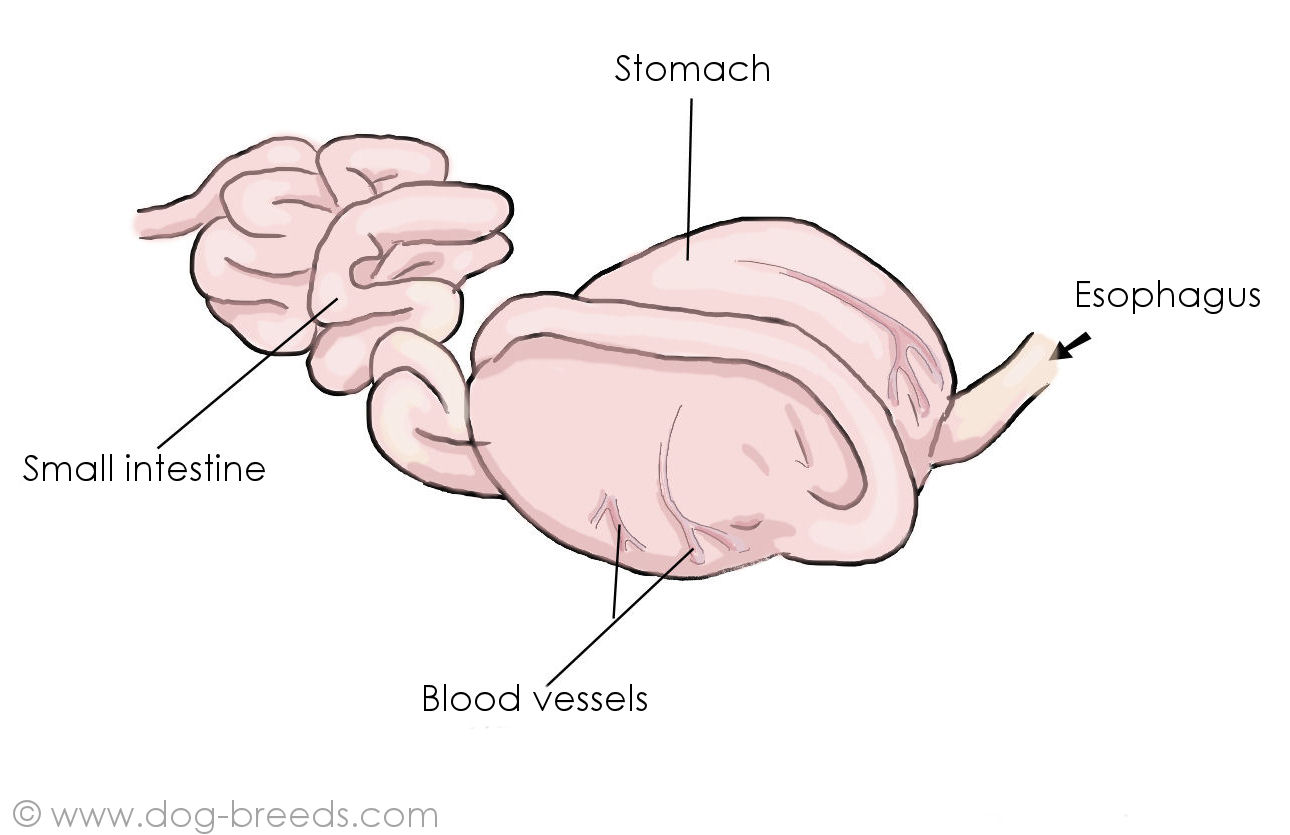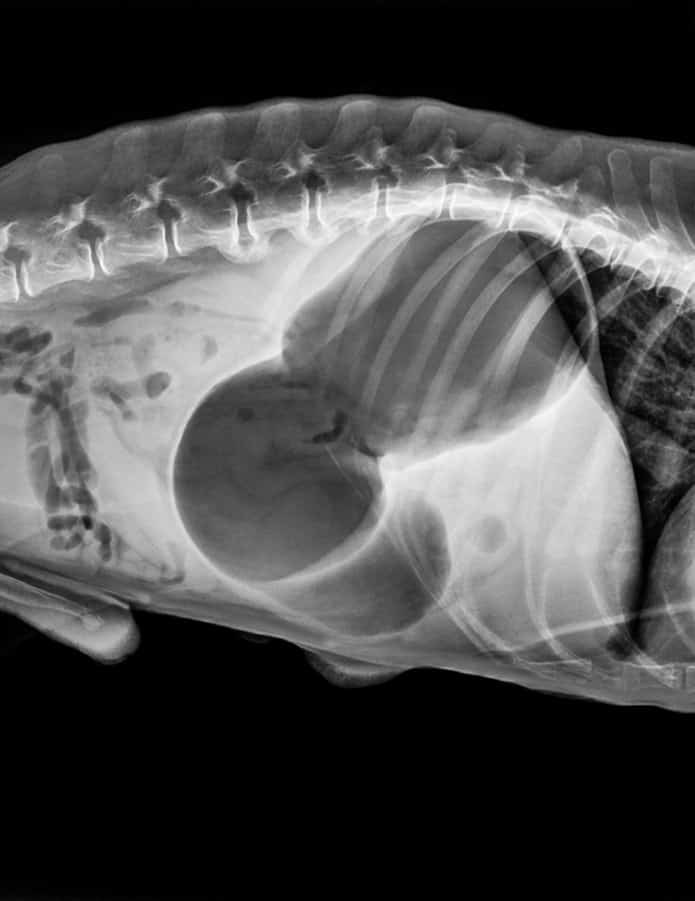Bloat, also referred to as gastric dilation volvulus (GDV) and gastric torsion, is a condition in which a dog’s stomach becomes distended, twists, or both. This can then lead to a number of serious complications such as; excessive abdominal pressure, lack of blood flow, and damage to vital organs due to low oxygen levels in the body.
Understanding Bloat in Dogs
Bloat is a medical emergency that requires immediate attention. It occurs when the stomach fills with gas, food, or fluid, causing it to expand and put pressure on other organs. In some cases, the stomach can also twist on itself (torsion), cutting off blood supply and potentially leading to tissue death. If left untreated, bloat can be fatal.

Symptoms of Bloat in Dogs
Bloat is considered to be a life-threatening condition, so it’s extremely important that owners are familiar with the signs associated with the disease. Some of the common symptoms of GDV include;
- Painful Abdomen (laying in fetal position, hunching)
- Abdominal Swelling
- Vomiting/Nausea (drooling)
- Loss of Appetite
- Restlessness
- Lethargy
- Pale Mucous Membranes (gums)
- Heavy Breathing
- Increased Heart Rate
- Collapse
It is a good idea to keep a list of emergency veterinary hospitals nearby, as bloat can be fatal. If your dog experiences any of the previously listed symptoms, get him or her to a vet as soon as possible.
Causes & Risk Factors of Bloat in Dogs
The exact cause of bloat in dogs has not yet been determined; however, research has shown that there are certain factors which increase the risk of gastric torsion. These factors include; overeating, eating too fast, excessive water intake, rigorous physical activity after meals, feeding a strictly dry food diet, and age (risk increases as the dogs get older). The condition is also thought to have a genetic link, as it is more prevalent in certain breeds, particularly large dogs with deep chests.
Breeds with a higher risk of developing gastric dilation volvulus include:
- Afghan
- Akita
- Alaskan Malamute
- Basset Hound
- Bernese Mountain Dog
- Bloodhound
- Boxer
- Briard
- Doberman
- German Mastiff
- German Shepherd
- Golden Retriever
- Great Dane
- Great Pyrenees
- Hovawart
- Irish Setter
- Irish Wolfhound
- Labrador Retriever
- Landseer
- Newfoundland
- Rottweiler
- Saint Bernard
- Standard Poodle
- Weimaraner
Treatment for Bloat in Dogs
The first step in treating bloat is stabilizing the patient and confirming the diagnosis. This typically involves x-rays, blood work, urinalysis, IV fluids, and IV medication. An esophageal tube may also be used in order to get rid of excess air and liquid in the stomach. For dogs only suffering from a distended abdomen, this may be sufficient to correct the problem. However, surgery is required for patients with a twisted stomach once they’ve been stabilized. During surgery, the stomach is repositioned and damage done to other organs is repaired. It is a risky procedure, but it’s also the only treatment option available for gastric torsion. Some vets also recommend a gastropexy, which is when the stomach is adjoined to the abdominal wall to decrease the chance of bloat recurring.
Prevention of Bloat in Dogs
There isn’t a way to fully prevent bloat from developing, but certain steps can be taken to minimize the risks. These steps include;
- Avoid exercising your dog after meals.
- Provide smaller, more frequent meals throughout the day.
- Prevent your dog from eating too fast or consuming too much water.
- Include moist or canned food in your pet’s diet.
- Maintain your canine at a healthy weight.
- Ask your vet if gastropexy is an option.
By following these preventative measures and staying vigilant for the signs of bloat, you can help reduce the risk of this life-threatening condition affecting your dog.
Relevant Sources
By staying informed and understanding the symptoms, causes, treatment options, and preventative measures for bloat in dogs, you can better protect your furry friend from this life-threatening condition. Remember to consult with your veterinarian if you have concerns about your dog’s health or if you suspect they may be experiencing bloat. Timely intervention can make all the difference in the outcome for your dog.
